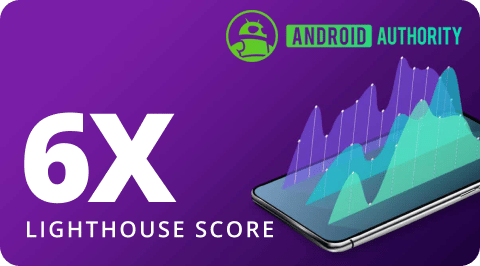WordPress vs Blogger – Which is Best?
Starting a blog, whether it’s for personal use or for business, can be a daunting task. The work becomes even more demanding as your blog grows, and you’ll need to learn all about Search Engine Optimization (SEO), a bit of basic HTML, and even some social media marketing. However, the first step for any blogger is to select a platform.
There are various solutions available for blogging, but two of the most well known are WordPress and Blogger. These platforms each have their own best use cases, as well as some unique pros and cons. Once you know how to choose the right one, you’ll be able to create a blog that fits your needs.
In this post, we’ll compare the features of both WordPress and Blogger, and take a closer look at the advantages and disadvantages of each one. Then we’ll help you pick the right platform for your needs. Let’s get started!
Blogger and WordPress Comparison
Blogger and WordPress are both blogging platforms, but with slightly different intended uses. Blogger is mainly used for personal blogs and journals, while WordPress is used to create a more extensive array of website types (including personal and professional blogs, eCommerce stores, business sites, and more).
These differences in use may lead you to believe that there is a ‘right’ or ‘wrong’ platform for your blog. While neither Blogger nor WordPress will be right for all users, WordPress does offer more versatility and features. This is why WordPress runs about 31.6% of websites on the internet, and Blogger only runs a fraction of that (at 0.8%).
However, before you make a decision, it’s important to consider the pros and cons of both options. Let’s take a closer look at each platform and its functionality.
Pros and Cons of Blogger
As one of the most popular blogging platforms of the 2000s, Blogger has earned its name among the content management giants. Its acquisition by Google helped to further launch it into the limelight, although the service has decreased in popularity over time.
Pros
The greatest benefit offered by Blogger is its price – free. This is appealing to new bloggers who are just getting their feet wet, and to those who may not need a fully-customizable platform. After all, why pay for features you aren’t likely to use?
In addition, Blogger is owned by Google, which means you can be sure that your platform is very secure. You don’t need to take any additional steps when it comes to protecting your blog, unlike with WordPress (which we’ll discuss below).
Cons
As we mentioned, Blogger does have some significant limitations. Namely, you have very little control over the functionality and appearance of your blog. You are also not the owner of your site, so it can be deleted without your consent at any time.
In addition, the limited post editing options are likely to directly affect what you can do as a blogger. This platform’s offerings are basic by nature (so as to promote simplicity), and they can’t be extended if you decide you want more advanced tools and features.
Pros and Cons of WordPress
WordPress was founded after Blogger, and was initially seen as a competitor. However, the two platforms have developed in dramatically different ways, and WordPress is now the king of Content Management Systems (CMSs).
Pros
One of the most attractive features of WordPress is that it lets you self-host your site. That is, you choose a web hosting provider yourself, and pay the hosting fees associated with it.
This enables you to have your own domain name (as opposed to a subdomain, such as those offered by Blogger). A custom domain name is highly useful for businesses and more ‘serious’ bloggers.
WordPress is also highly customizable, with thousands of themes to choose from that will alter its appearance. You can also use plugins to extend your site’s functionality, and even connect your WordPress account with other services you use (such as WooCommerce and MailChimp).
Finally, WordPress is a highly secure platform out of the box. What’s more, you can use a variety of dedicated security plugins to make it even safer, protecting both you and your visitors.
Cons
The skills required to run a self-hosted WordPress site are minimal, but the requirements can be daunting to those just looking for a basic platform on which to host their blog. Using WordPress is also not free (although WordPress does offer its own free blogging platform that is similar to Blogger’s), but the cost involved is often minimal.
WordPress vs Blogger: Who Wins?
WordPress and Blogger are both useful platforms in their own right. So, which is the best option for you? This will depend entirely on your needs.
If you’re looking for a simple blogging platform that is free of charge and requires very little in the way of management, then Blogger is likely the best option for you. Despite its lack of functionality and customizability, Blogger can be ideal for those who just need a basic place in which to post their thoughts or opinions.
However, if you need a more powerful platform that gives you the freedom to customize and expand, then WordPress should be your go-to solution. WordPress can be used for many applications, from a basic blog to an eCommerce shop, and there is almost no limit to what it can do. Hosting your own blog is also best for those who need a professional online presence.
Get Support for More Common WordPress Questions from WP Engine
Perhaps one of the greatest advantages of WordPress over Blogger is the extensive support offered by WordPress-only hosting providers, such as WP Engine. In fact, our experienced support team can answer many of your questions, and we even offer a dedicated Resource Center.
Would you like to learn more about WP Engine and the benefits our plans provide for bloggers? Contact us today, or let us know in the comments section below!











